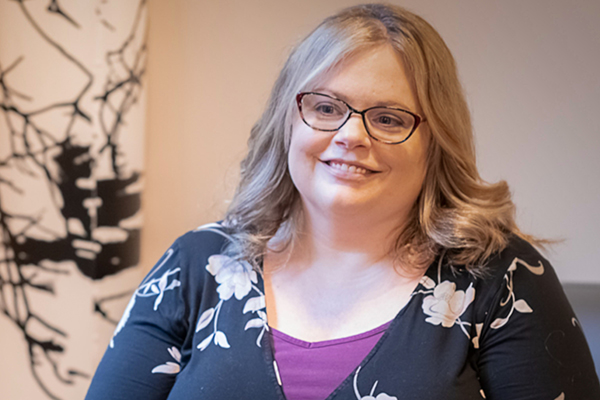
Counselling Services for Interpersonal Relationships
Do you have a desire to better understand yourself and how you relate to those who are close to you? Practicing healthy interpersonal skills can improve the ever-important relationships you have with others.
What is an interpersonal relationship?
The term interpersonal relationship refers to a strong, deep, or otherwise close relationship between two or more people.
Interpersonal relationships can be brief or long-lasting. They may be bound by love, respect, kinship, or other social or work-related association. They may also be defined by a combination of more than one of these factors.
Someone with healthy interpersonal skills is better at communicating their own needs, and understanding the needs of others.
Examples of interpersonal relationships include:
- Romantic relationships
- Friendships
- Family bonds
- Professional acquaintances
- Neighbours
- Club members or teammates
- Religious associations
Interpersonal relationships of all types take skillful work to maintain.
However, some of us were not able to come by and learn healthy interpersonal skills naturally. And that’s okay, because it’s not too late to learn.
Relationships of all kinds are important for our wellbeing. Deep connections with others predicts better health.
The impact of interpersonal relationships
We often underestimate our need for social connections and isolate ourselves when what we really need is to reach out.
We value independence but actually thrive with inter-dependence. Humans are wired for connection. Social bonds have a huge effect on our personal identity.
When these social bonds are under threat or are lost, we suffer. And when we experience social pain, it feels just as ‘real’ as if it were physical pain.
Being skilled at interpersonal relationships can free you from the bonds of isolation, and allow you to flourish alongside others.
“Acceptance is not love. You love a person because he or she has lovable traits, but you accept everybody just because they’re alive and human.”
Albert Ellis
What are the symptoms of poor interpersonal relationship skills?
The signs that you have poor or unhealthy interpersonal skills can vary from person to person, relationship to relationship.
However, if you find yourself relating to some or many of the following points, you will likely benefit from working on your interpersonal relationships.
Signs of unhealthy interpersonal skills:
- Having troubles expressing yourself and your feelings
- Finding yourself isolating and avoiding others
- Constantly seeking approval and affirmation
- Being fearful or outright rejecting criticism from others
- Fear of authority figures
- Acting impulsively, not keeping the consequences of your actions in mind
- Uncertainty over what constitutes “normal” behaviour
- Feeling that you think or act “differently” from most people
- Devaluing your personal accomplishments and positive actions
- Judging yourself more harshly than you do others
- Struggle to complete personal or professional projects
- Fear, stress, or anxiety when around someone who is angry
- Creating “white lies” or other practices to avoid conflict
- Feel that you’re being taken advantage of or being targeted by others (or the world at large)
- Difficulty making and maintaining relationships
- Feelings of guilt or shame when you put yourself ahead of others
- Feeling personally responsible for other people
Areas where healthy interpersonal skills are of particular importance
Romantic Relationships
You could be dating, cohabitating, or married for decades. You may be raising children together, or going through a separation or divorce. No matter what stage of a romantic relationship you are in, they take work.
Your interpersonal skills – and those of your partner – dictate how you’re able to interact with each other, for better or for worse.
Interested in improving your interpersonal skills, but not sure where to start? Contact me for a free phone consultation to discuss the options.
Friendships
We often think friendships should be easy, but in reality they can be very complex. Each individual has their own expectations of the relationship and beliefs about what friendship is.
Interpersonal relationship counselling can help us find healthy ways to interact with our friends, and allow us to nurture stronger connections to others.
Family Relationships
When dealing with family, we must take into account the context of the individual’s role within the entire family system. We also need to understand that each member of the family impacts all other members of the family, as well as the overall cohesiveness of the family unit.
Interpersonal relationship counselling can help to shed light on the complexity of family dynamics, and teach healthy ways to communicate with family members.
Professional Acquaintances
We often spend more time with coworkers than we do our family and closest friends. What’s more, we don’t have the power to easily walk away from these relationships. We may be taking a huge risk when we try to address them.
By improving your interpersonal skills, you can learn how to reduce the stress and anxiety commonly experienced in all types of relationships.

How can counselling help to improve interpersonal relationships?
Work done during interpersonal relationship counselling is designed to improve how we interact with other people.
With healthy interpersonal skills, you can feel less stress and anxiety when dealing with relationships of all types.
You can enhance your intimacy with others, and live a more joyful life. You’ll also feel better equipped to handle and resolve conflict when it inevitably arises.
Interpersonal relationship counselling may include:
- Understanding our social needs and our deep desire for belonging
- Understanding our biased beliefs about others
- Improving communication skills, such as active listening, validating, and assertiveness
- Repairing fractures and managing conflict
- Understanding the others’ perception, negotiation, problem solving
- Emotion regulation and anger management
- Defining the differences between healthy interdependence and codependency
- Learning how to accept influence without losing yourself
- Understanding our defence strategies (and how to address them)
- Setting boundaries
Get started by booking a free phone call. We’ll discuss the issues you’re looking to address, and see if interpersonal relationship counselling is suitable for you.
